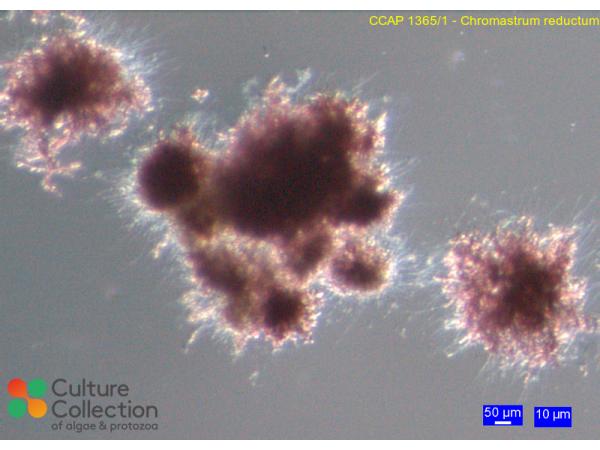Note: for strains where we have DNA barcodes we can be reasonably confident of identity, however for those not yet sequenced we rely on morphology
and the original identification, usually made by the depositor. Although CCAP makes every effort to ensure the correct taxonomic identity of strains, we cannot guarantee
that a strain is correctly identified at the species, genus or class levels. On this basis users are responsible for confirming the identity of the strain(s) they receive
from us on arrival before starting experiments.
For strain taxonomy we generally use AlgaeBase for algae and
Adl et al. (2019) for protists.
| Attributes | |
| Authority | (Rosenvinge) Hamel 1927 |
| Isolator | Kuiper (1981) |
| Collection Site | epiphytic on Polysiphonia violaceae Misrnjen, Norway |
| Notes | the tetrasporophyte of C. kylinoides (Feldmann) Stegenga & van Wissen; This macroalgal culture contains bacteria and probably other organisms in low numbers, we are happy to provide further info on specific strains if you contact us; name changed Mar23 as per AlgaeBase |
| Axenicity Status | Bacteria and other organisms present |
| Area | Europe |
| Country | Norway |
| Environment | Marine |
| GMO | No |
| Group | Macroalgae |
| Latitude | 59.09 N |
| Longitude | 10.44 E |
| In Scope of Nagoya Protocol | No |
| ABS Note | Collected pre Nagoya Protocol. No known Nagoya Protocol restrictions for this strain. |
| Collection Date | c 1981 |
| Original Designation | 671 |
| Pathogen | Not pathogenic: Hazard Class 1 |
| Strain Maintenance Sheet | |
| Toxin Producer | Not Toxic / No Data |
| Type Culture | No |
| Taxonomy WoRMS ID | 144381 |
| Synonyms | Chromastrum kylinioides , Chromastrum reductum |
| Formerly Listed in CCAP as | Chromastrum reductum |
CCAP 1365/1
Acrochaetium reductum
- Product Code: CCAP 1365/1
- Availability: See Availability/Lead Times


